Washington Irving
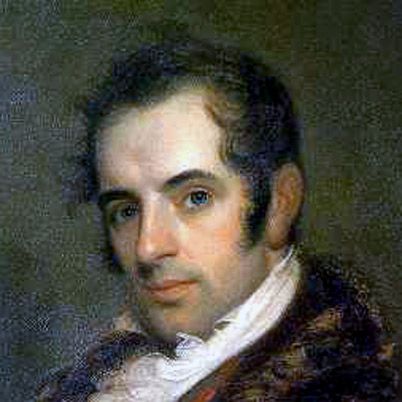
(1783-1859)

Who Was Washington Irving?
Author Washington Irving achieved international fame for the fictional stories "Rip Van Winkle" and "The Legend of Sleepy Hollow," as well as for such biographical works as A History of the Life and Voyages of Christopher Columbus . Irving also served as the U.S. ambassador to Spain in the 1840s, and pushed for stronger copyright laws before his death in 1859.
Early Years and Career
Washington Irving was born on April 3, 1783, in New York City. The youngest of 11 children of Scottish-English immigrant parents William Sr. and Sarah, he was named after George Washington , the hero of the just-completed American Revolution, and attended the presidential inauguration of his namesake in 1789.
Educated privately, Irving began writing essays under the pen name Jonathan Oldstyle for the Morning Chronicle , which was edited by older brother Peter. After touring Europe from 1804-06, he returned to New York City to practice law – through by his own admission, he was not a good student, and in 1806 he barely passed the bar.
Preferring to indulge his creative impulses, Irving teamed with friend James Kirke Paulding and oldest brother William to publish Salamagundi , a periodical of humorous essays. In a similar vein, he penned the History of New-York from the Beginning of the World to the End of the Dutch Dynasty, by Diedrich Knickerbocker (1809), a satirical work that earned the writer widespread acclaim.
Despite the early successes, Irving's career stalled as he sought to figure out what to do next. He landed a job as editor of Analectic Magazine , and briefly served in the military during the War of 1812.
European Residency and Fame
In 1815, Irving traveled to England to help his brothers with the floundering family business. When that endeavor failed, he composed a collection of stories and essays that became The Sketch Book of Geoffrey Crayon, Gent . Published in several installments over the course of 1819-20, The Sketch Book contained two of the author's most famous works, "Rip Van Winkle" and "The Legend of Sleepy Hollow," and made him a literary star both in England and the United States.
Irving followed with Bracebridge Hall (1822), and then Tales of a Traveller (1824). After accepting an invitation from the U.S. Minister to Spain, he moved to Madrid in 1826 and embarked on extensive research for A History of the Life and Voyages of Christopher Columbus (1828), as well as the works that became Chronicle of the Conquest of Granada (1829) and Tales of the Alhambra (1832). Irving was then appointed secretary of the U.S. legation to London in 1829, a post he held until 1832.
Later Years, Death and Legacy
Upon returning to the United States in 1832, Irving visited some of the little-known territories off the western fringes of the country, an expedition that inspired A Tour on the Prairies (1835). Continuing the western frontier theme, he wrote Astoria (1836), an account of the formation of John Jacob Astor's fur company, followed by The Adventures of Captain Bonneville (1837).
After another stint abroad as U.S. minister to Spain (1842-46), Irving spent his later years at his New York estate of "Sunnyside," which served as a meeting place for the leading writers, artists and politicians of his era. He turned out a succession of mainly historical and biographical works during this time, including the five-volume Life of George Washington (1855-59). Irving passed away at his estate on November 28, 1859.
Considered perhaps the first true American writer, Irving sought to nurture his successors and pushed for stronger laws to protect writers from copyright infringement. The terminology of his works seeped into American popular culture, with monikers such as "knickerbocker" and "Gotham" becoming affiliated with New York City. Underscoring the endurance of his fictional creations, "The Legend of Sleepy Hollow" was adapted into a 1999 film by director Tim Burton , and served as the basis for a TV series in 2013.
QUICK FACTS
- Name: Irving Washington
- Birth Year: 1783
- Birth date: April 3, 1783
- Birth State: New York
- Birth City: New York City
- Birth Country: United States
- Gender: Male
- Best Known For: Famed 19th century American author Washington Irving is known for his biographical works and such stories as 'Rip Van Winkle' and 'The Legend of Sleepy Hollow.'
- Writing and Publishing
- World Politics
- U.S. Politics
- Fiction and Poetry
- Politics and Government
- Journalism and Nonfiction
- Astrological Sign: Aries
- Death Year: 1859
- Death date: November 28, 1859
- Death State: New York
- Death City: Tarrytown
- Death Country: United States
We strive for accuracy and fairness.If you see something that doesn't look right, contact us !
CITATION INFORMATION
- Article Title: Washington Irving Biography
- Author: Biography.com Editors
- Website Name: The Biography.com website
- Url: https://www.biography.com/authors-writers/washington-irving
- Access Date:
- Publisher: A&E; Television Networks
- Last Updated: August 17, 2020
- Original Published Date: April 2, 2014
- Little minds are tamed and subdued by misfortune; but great minds rise above them.

Famous Authors & Writers

Nikki Giovanni
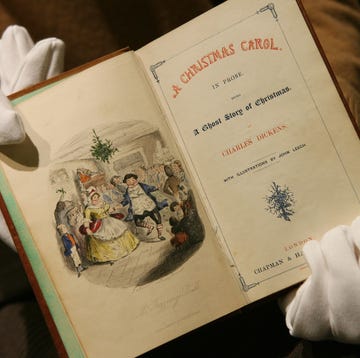
Charles Dickens Wrote A Christmas Carol in 6 Weeks
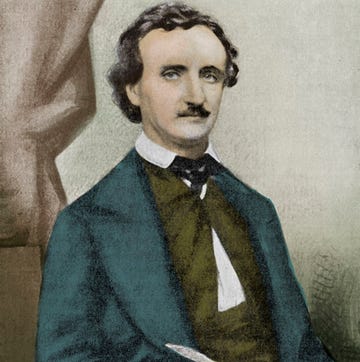
The Truth Behind Edgar Allan Poe’s Terror Tales
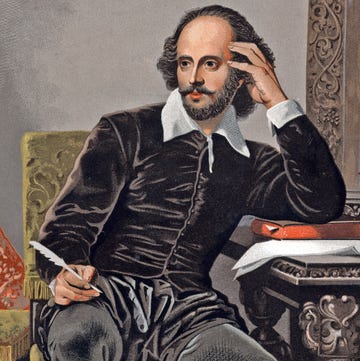
How Did Shakespeare Die?
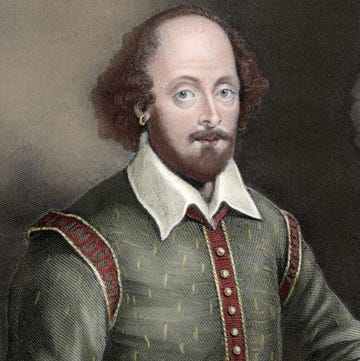
A Huge Shakespeare Mystery, Solved
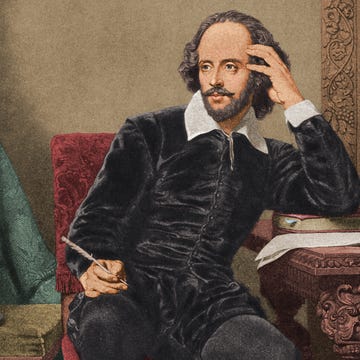
Shakespeare Wrote 3 Tragedies in Turbulent Times
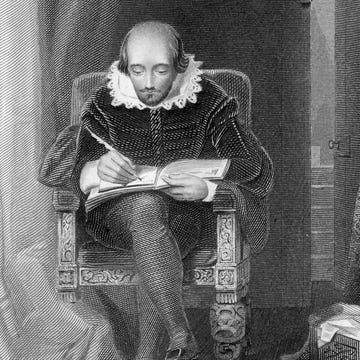
The Mystery of Shakespeare's Life and Death
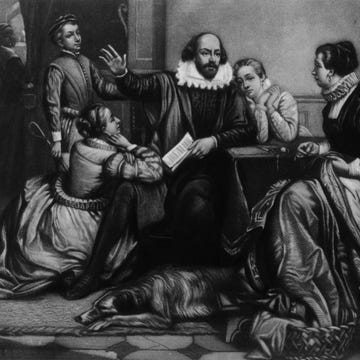
Was Shakespeare the Real Author of His Plays?
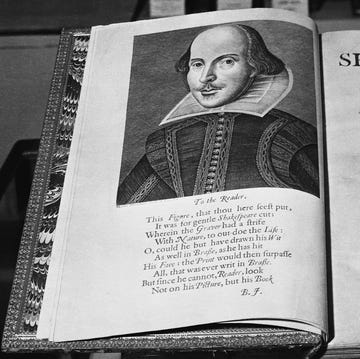
20 Shakespeare Quotes

William Shakespeare
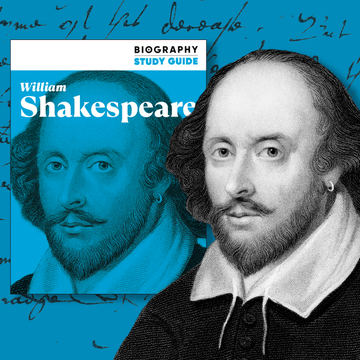
The Ultimate William Shakespeare Study Guide

Suzanne Collins

- Biographies & Memoirs
- Leaders & Notable People

Amazon Prime Free Trial
FREE Delivery is available to Prime members. To join, select "Try Amazon Prime and start saving today with FREE Delivery" below the Add to Cart button and confirm your Prime free trial.
- Cardmembers earn 5% Back at Amazon.com with a Prime Credit Card.
- Unlimited FREE Prime delivery
- Streaming of thousands of movies and TV shows with limited ads on Prime Video.
- A Kindle book to borrow for free each month - with no due dates
- Listen to over 2 million songs and hundreds of playlists
Important: Your credit card will NOT be charged when you start your free trial or if you cancel during the trial period. If you're happy with Amazon Prime, do nothing. At the end of the free trial, your membership will automatically upgrade to a monthly membership.
Buy new: .savingPriceOverride { color:#CC0C39!important; font-weight: 300!important; } .reinventMobileHeaderPrice { font-weight: 400; } #apex_offerDisplay_mobile_feature_div .reinventPriceSavingsPercentageMargin, #apex_offerDisplay_mobile_feature_div .reinventPricePriceToPayMargin { margin-right: 4px; } -35% $21.99 $ 21 . 99 FREE delivery December 27 - 28 on orders shipped by Amazon over $35 Ships from: Amazon.com Sold by: Amazon.com
Return this item for free.
We offer easy, convenient returns with at least one free return option: no shipping charges. All returns must comply with our returns policy.
- Go to your orders and start the return
- Select your preferred free shipping option
- Drop off and leave!
Save with Used - Good .savingPriceOverride { color:#CC0C39!important; font-weight: 300!important; } .reinventMobileHeaderPrice { font-weight: 400; } #apex_offerDisplay_mobile_feature_div .reinventPriceSavingsPercentageMargin, #apex_offerDisplay_mobile_feature_div .reinventPricePriceToPayMargin { margin-right: 4px; } $12.61 $ 12 . 61 FREE delivery Sunday, December 29 on orders shipped by Amazon over $35 Ships from: Amazon Sold by: Zoom Books Company

Download the free Kindle app and start reading Kindle books instantly on your smartphone, tablet, or computer - no Kindle device required .
Read instantly on your browser with Kindle for Web.
Using your mobile phone camera - scan the code below and download the Kindle app.

Image Unavailable

- To view this video download Flash Player
Follow the author

George Washington: A Biography Paperback – Abridged, August 22, 1994
Purchase options and add-ons.
- Print length 790 pages
- Language English
- Publication date August 22, 1994
- Dimensions 5.5 x 1.82 x 8.5 inches
- ISBN-10 0306805936
- ISBN-13 978-0306805936
- See all details

Frequently bought together

Customers who viewed this item also viewed

Editorial Reviews
From the back cover, about the author, product details.
- Publisher : Da Capo; Reprint edition (August 22, 1994)
- Language : English
- Paperback : 790 pages
- ISBN-10 : 0306805936
- ISBN-13 : 978-0306805936
- Item Weight : 1.9 pounds
- Dimensions : 5.5 x 1.82 x 8.5 inches
- #344 in American Revolution Biographies (Books)
- #973 in U.S. Revolution & Founding History
- #1,161 in US Presidents
About the author
Washington irving.
Discover more of the author’s books, see similar authors, read book recommendations and more.
Customer reviews
- 5 star 4 star 3 star 2 star 1 star 5 star 83% 4% 9% 2% 2% 83%
- 5 star 4 star 3 star 2 star 1 star 4 star 83% 4% 9% 2% 2% 4%
- 5 star 4 star 3 star 2 star 1 star 3 star 83% 4% 9% 2% 2% 9%
- 5 star 4 star 3 star 2 star 1 star 2 star 83% 4% 9% 2% 2% 2%
- 5 star 4 star 3 star 2 star 1 star 1 star 83% 4% 9% 2% 2% 2%
Customer Reviews, including Product Star Ratings help customers to learn more about the product and decide whether it is the right product for them.
To calculate the overall star rating and percentage breakdown by star, we don’t use a simple average. Instead, our system considers things like how recent a review is and if the reviewer bought the item on Amazon. It also analyzed reviews to verify trustworthiness.
Review this product
Customers say.
Customers find the book informative and thorough. They describe it as a good read for anyone interested in George Washington. The quality and appearance are appreciated. Overall, customers consider it a worthwhile purchase and a great resource for research.
AI-generated from the text of customer reviews
Customers enjoy the book's readability and quality. They find it a good read for anyone interested in George Washington.
"This is really a terrific read , and about as close to Washington as an author can get...." Read more
"This was an excellent book . However be warned! It was written in the 1800s, and it is in the old English language style...." Read more
"...It is well done and faithful, if a bit adulatory. The book focuses on Washington without shrinking those around him to invisibility...." Read more
"1st several chapters are informative, but not interest keeping. Harder to read because of the phraseology difference between 19th century vernacular..." Read more
Customers find the book informative and thorough. They appreciate the real-time feel of the biography and find it a good history of Washington.
"...It really is a detailed history not only of Washington, but of the revolutionary war. A life's work of Washington Irving." Read more
"Very long and very thorough , but worth every moment!..." Read more
" 1st several chapters are informative , but not interest keeping...." Read more
"...This book has been a part of a reading. It was a fabulous book with great detail ...." Read more
Customers appreciate the book's value for money. They find it thorough and a great resource for research.
"Very long and very thorough, but worth every moment !..." Read more
" Wonderful book ." Read more
" Great book for my research , shipping was well on time." Read more
Reviews with images


The Father of Our Country, George Washington.

Top reviews from the United States
There was a problem filtering reviews right now. please try again later..
5.0 out of 5 stars Good biography of 1st president
5.0 out of 5 stars the father of our country, george washington..

5.0 out of 5 stars A good read for anyones wanting to know about George Washington.
5.0 out of 5 stars important, 5.0 out of 5 stars real history written soon afterward, 5.0 out of 5 stars george washington: a biography, 5.0 out of 5 stars very long and very thorough, but worth every moment ..., 4.0 out of 5 stars good transaction book came quickly..
- Amazon Newsletter
- About Amazon
- Accessibility
- Sustainability
- Press Center
- Investor Relations
- Amazon Devices
- Amazon Science
- Sell on Amazon
- Sell apps on Amazon
- Supply to Amazon
- Protect & Build Your Brand
- Become an Affiliate
- Become a Delivery Driver
- Start a Package Delivery Business
- Advertise Your Products
- Self-Publish with Us
- Become an Amazon Hub Partner
- › See More Ways to Make Money
- Amazon Visa
- Amazon Store Card
- Amazon Secured Card
- Amazon Business Card
- Shop with Points
- Credit Card Marketplace
- Reload Your Balance
- Amazon Currency Converter
- Your Account
- Your Orders
- Shipping Rates & Policies
- Amazon Prime
- Returns & Replacements
- Manage Your Content and Devices
- Recalls and Product Safety Alerts
- Registry & Gift List
- Conditions of Use
- Privacy Notice
- Consumer Health Data Privacy Disclosure
- Your Ads Privacy Choices
Plan Your Visit
- Things to Do
- Where to Eat
- Hours & Directions
- Frequently Asked Questions
- Accessibility
- Washington, D.C. Metro Area
- Guest Policies
- Historic Area
- Distillery & Gristmill
- Virtual Tour
George Washington
- French & Indian War
- Revolutionary War
- Constitution
- First President
- Martha Washington
- Native Americans
Preservation
- Collections
- Archaeology
- Architecture
- The Mount Vernon Ladies' Association
- Restoration Projects
- Preserving the View
- Preservation Timeline
- For Teachers
- Primary Source Collections
- Secondary Sources
- Educational Events
- Interactive Tools
- Videos and Podcasts
Washington Library
- Catalogs and Digital Resources
- Research Fellowships
- The Papers of George Washington
- Library Events & Programs
- Leadership Institute
- Center for Digital History
- George Washington Prize
- About the Library
- Back to Main menu
- Colonial Music Institute
- Past Projects
- Digital Exhibits
- Digital Encyclopedia
- About the Encyclopedia
- Contributors
- George Washington Presidential Library
Estate Hours
9 a.m. to 4 p.m.
u_turn_left Directions & Parking
Washington Irving
![george washington irving biography Washington Irving, by Matthew B. Brady, ca. 1861. [LC-USZ62-4238]. Courtesy Library of Congress, Washington, D.C.](https://mtv-drupal-assets.s3.amazonaws.com/files/resources/irving-washington-loc.jpg?VersionId=qywJlSBKbCpTmz8yb56y02_FA8orBAcp)
Born in New York City , Irving was the eighth child in his family. Both of his parents emigrated from England to New York twenty years earlier, and his father became a merchant to support the family. 1 As Irving grew up, he found that the things that gave him the most joy in life were reading, drawing, and writing. 2 At the age of nineteen, he began to pursue his passions by writing essays in his brother’s newspaper The Morning Chronicle. By 1819, he made the bold decision to try to make a living through writing alone. Irving felt that he was unsuited for any other form of occupation, and that he was determined to succeed in making a name for himself through writing literature. If he did not succeed, however, he would be willing to take on other forms of employment in order to survive. 3
Thankfully for him, the gamble paid off after the publication of the essays included in The Sketch Book of Geoffrey Crayon throughout 1819 and 1820. As one reviewer put it, Irving’s series of short stories helped to demonstrate his unique sense of humor and style, best demonstrated by “Rip van Winkle.” 4 The Sketch Book gained Irving attention not just in the United States, but also in England. One Englishman described Irving’s writings as being kind and affectionate, personally favoring the “Essay on Rural Life in England.” 5
By the 1850s, Irving decided to write a biography of George Washington. In the early nineteenth century, biography was an increasingly popular literary genre and the much-admired Washington was an ideal subject. Previous biographies of Washington had been written by Mason Locke Weems (who invented the cherry tree myth ) and Chief Justice John Marshall , but given Irving’s recent literary reputation, a biography of George Washington by him would be very likely to sell. 6
In 1853, Irving began his research about Washington. He utilized two important sources to craft the biography— The Writings of George Washington, and a series of George Washington’s letters acquired through the State Department. 7
After two years of research, Irving began writing his Washington biography at his home in Sunnyside, New York. In his preface, Irving explained that he had long wanted to write a biography of Washington, though ill health as well as his many travels to Europe delayed the project. 8 According to Irving,he sought to write in a narrative style that also rigorously grounded itself in historical facts. 9

Some reviewers argued that by exploring Washington’s military and personal life in a realistic manner, Irving was able to transform Washington from a demigod figure into a subject far more approachable and understandable to the average reader. The historian George Bancroft lauded Irving for writing both with the qualities of good historian and with narrative tone that made the events portrayed seem natural. 10 Another historian, William H. Prescott, after reading the fourth volume, congratulated Irving for making Washington into someone that people could relate to. 11 Irving had managed to establish himself not just as a successful fiction writer, but also a successful historian.
Irving died the same year that he released the final installment of the biography. Many were shocked and saddened by his passing. Flags were held at half-mast at the news of his passing, and many paused and reflected on his achievements as a literary figure. 12
Washington Irving today is primarily remembered for his short stories that took a humorous look at American history and culture. His biography of George Washington, by contrast, also demonstrated his keen ability for presenting history in a professional and engaging. It became one of the most important biographies of the nineteenth century, and it still serves as one of most famous depictions of Washington's life.
James Beveridge George Mason University
1. Irving Pierre, Life and Letters of Washington Irving Vol. 1 (New York: G. P. Putnam, 1863) 19.
2. Washington Irving to John Furman, July 26, 1802. Life and Letters of Washington Irving Vol. 1.
3. Washington Irving to Ebenezer Irving, March 3, 1819. Life and Letters of Washington Irving Vol. 1.
4. New-York Evening Post , June 26, 1819.
5. Washington Irving to Ebenezer Irving, March 3, 1819. Life and Letters of Washington Irving Vol. 1.
6. Casper Scott, Constructing American Lives (Chapel Hill: University of North Carolina Press, 2005), 22-23
7. Washington Irving to Robert C. Winthrop, May 23, 1853. Life and Letters of Washington Irving Vol. 1.
8. Irving Washington, George Washington: A Biography (New York: Da Capo Press, 1994) Preface: 1.
9. Irving Washington, George Washington: A Biography (New York: Da Capo Press, 1994) 623-624.
10. George Bancroft to Washington Irving, May 30, 1855. Life and Letters of Washington Irving Vol. 1.
11. William H. Prescott to Washington Irving, August 7, 1857. Life and Letters of Washington Irving Vol. 1.
12. “The Tribute of the Metropolis,” New York Herald, Dec. 2, 1859.
Bibliography:
“Death of Washington Irving” Farmer’s Cabinet , (Amherst, N.H.), Dec. 7, 1859
Hedges, William. “Irving, Washington.” American National Biography Online , 2000.
Irving, Washington. The Works of Washington Irving: Life of Washington: Part Four. New York and London: The Cooperative Publication Society, 1904.

Washington Irving Society
Founding fathers: george washington and washington irving.
BY TRACY HOFFMAN
Wednesday, September 19, 2018
As most people can guess, Washington Irving was named after George Washington. And biographies of Washington Irving always include one of the earliest major events in the writer’s life: the young boy being presented to George Washington when the president was settling into the capital of New York City.
The two-volume biography by Stanley T. Williams, first published in 1935 and still a classic in Irving studies, explains how well-known the story was to the American people: “The incident of Washington Irving’s meeting with the President has been repeated in story and sketch until it has the aroma of fable. The day and month are unknown, but the fact is demonstrable” (I: 10).
Pierre Irving, his uncle’s chief biographer and writing assistant, gives the following account:
“A young Scotch maid-servant of the family, struck with the enthusiasm which everywhere greeted [the president’s] arrival, determined to present the child to his distinguished namesake. Accordingly, she followed him one morning into a shop, and pointing to the lad who had scarcely outgrown his virgin trousers: ‘Please your honor,’ said she, ‘here’s a bairn was named after you.’ In the estimation of Lizzie, for so she was called, few claims of kindred could be stronger than this. Washington did not disdain the delicate affinity, and placing his hand on the head of her little charge, gave him his blessing.” (I: 30).
Stanley Williams further comments upon this scene: “Perhaps the sentiment of this conjunction, occurring in an age uncritical of Washington, found reëxpression in the idealized portrait of the general in the biography…At least it is certain that to write of George Washington became from earliest youth a dream of Irving’s” (I: 10).
The encounter clearly inspired his last work, the five-volume Life of George Washington (1855-1859), an appropriate bookend to the writer’s lengthy career which began with the idea that he was connected in a small way to the first president’s legacy.
The Father of America met the Father of American Literature. Of course, neither Washington nor Irving had children. George only had children when Martha brought them into the marriage. Irving never married, never had children, though he did help with many nieces and nephews.
Many years ago, perhaps a decade, I spent the entire summer reading through the five-volume set of the George Washington biography by Irving. I wrote a book chapter about Irving’s impressions of the president, but then I pulled the chapter from a collection that was taking way too long for my taste.
I’ve given many papers loosely based on the book chapter, but still ponder from time to time how to best shape what I gleaned from the reading into something useful and substantial about Irving’s final work.
My major takeaway from the reading: Irving romanticizes and rationalizes the president’s stance on many issues, most notably slavery, by delving into internal struggles the president may have entertained.
I would be curious to know which Irving scholars have read the five volumes. Perhaps we could put our heads together and find a worthwhile study of the important connection.
- Uncategorized
The URI to TrackBack this entry is: https://washingtonirvingsociety.org/2018/09/19/founding-fathers-george-washington-and-washington-irving/trackback/
RSS feed for comments on this post.
2 Comments Leave a comment
I remember some years ago hearing about a recently written biography of George Washington. I came across a copy in a local bookshop and instantly checked the notes in the back to see how often Irving was cited. To my surprise, it was only once: in the introduction. I went to the page noted and saw the author had, in a reference to previous biographies on the subject, referred to one by “colorist” Washington Irving.Not biographer, or author or Father of American Literature. Irving who had nearly killed him self writing his biography, was dismissed as a mere colorist. I don’t rember this writer’s name or recall the title of the book, which I didn’t buy!
Thank youu for being you
Leave a comment Cancel reply
Other pages.
- About the Washington Irving Society
- Audio Chats
- Bracebridge Dinners
- Calls for Papers
- Presentations
- Publications
- Teaching Resources
- Upcoming Events
- What’s New?
Blog at WordPress.com. RSS 2.0 Comments RSS 2.0

- Already have a WordPress.com account? Log in now.
- Subscribe Subscribed
- Copy shortlink
- Report this content
- View post in Reader
- Manage subscriptions
- Collapse this bar
- Humanities ›
- Literature ›
- Classic Literature ›
- Authors & Texts ›
Biography of Washington Irving, Father of the American Short Story
PhotoQuest / Getty Images
- Authors & Texts
- Top Picks Lists
- Study Guides
- Best Sellers
- Plays & Drama
- Shakespeare
- Short Stories
- Children's Books
- M.A., English Literature, California State University - Sacramento
- B.A., English, California State University - Sacramento
Washington Irving (April 3, 1783–November 28, 1859) was a writer, essayist, historian, biographer, and diplomat most famous for the short stories " Rip Van Winkle " and " The Legend of Sleepy Hollow ." These works were both a part of "The Sketch Book," the collection of short stories that won him international recognition. Washington Irving has been called the father of the American short story because of his early and unique contributions to the form.
Fast Facts: Washington Irving
- Known For : Father of the American short story, biographer, historian, diplomat
- Also Known As : Dietrich Knickerbocker, Jonathan Oldstyle, and Geoffrey Crayon
- Born : April 3, 1783 in New York City
- Parents : William Irving and Sarah Sanders
- Died : November 28, 1859 in Tarrytown, New York
- Education : Elementary school, law school
- Published Works : A History of New York, The Sketch Book (including the stories Rip Van Winkle and The Legend of Sleepy Hollow ), Bracebridge Hall, The Alhambra, The Life of George Washington
- Fiancée : Matilda Hoffmann
- Notable Quote : "There is a certain relief in change, even though it be from bad to worse; as I have found in travelling in a stage-coach, that it is often a comfort to shift one's position and be bruised in a new place."
Early Life and Education
Washington Irving was born on April 3, 1783, in New York City. His father William was a Scottish-American merchant, and his mother Sarah Sanders was the daughter of an English clergyman. At the time of his birth, the American Revolution was just ending.
His parents were patriotic. His mother said upon the birth of her 11th child, "[General] Washington's work is ended and the child shall be named after him." According to Irving biographer Mary Weatherspoon Bowden, "Irving maintained close ties with his family his entire life."
Washington Irving read a great deal as a boy, including " Robinson Crusoe ," " Sinbad the Sailor ," and "The World Displayed." His formal education consisted of elementary school until he was 16, where he performed without distinction.
Early Writing Career
Irving began writing when he was 19 as a journalist using the pseudonym Jonathan Oldstyle. As a reporter for his brother Peter’s newspaper The Morning Chronicle , he covered Aaron Burr’s treason trial.
Irving traveled widely in Europe from 1804 to 1806 on a "grand tour," paid for by his family. After returning, using the pseudonym Dietrich Knickerbocker, Irving published the 1809 comic history of Dutch life in New York, "A History of New York." Some literary scholars consider this work of burlesque fiction to be his greatest book. He then studied law and he passed the bar in 1807.
Washington Irving was engaged to marry Matilda Hoffmann, the daughter of a prominent local family. She died of consumption on April 26, 1809, at the age of 17. Irving never became engaged or married anyone after the tragedy.
This loss indeed scarred his life. In response to an inquiry about why he had never married, Irving wrote in a letter, saying: "For years I could not talk on the subject of this hopeless regret; I could not even mention her name, but her image was continually before me, and I dreamt of her incessantly."
Europe and Literary Acclaim
Irving returned to Europe in 1815 and lived there for 17 years. In 1820, he published "The Sketch Book of Geoffrey Crayon, Gent," a collection of stories including his best-known works, "Rip Van Winkle" and "The Legend of Sleepy Hollow." These stories are thought to be the first examples of the genre of the short story, and they are both gothic and humorous.
"The Sketch-Book" was a milestone in American literary history because it was the first piece of American writing to garner European recognition. James Fenimore Cooper was the only other contemporary American writer to receive international acclaim. Later in his life, Irving would encourage the careers of great American authors Nathaniel Hawthorne, Edgar Allen Poe, and Herman Melville.
In 1832 while living in Spain, Irving published "Alhambra," which described the history and stories of Moorish Spain. After a few years back in the United States, Irving returned to Spain, serving as the U.S. minister to Spain from 1842–1845 under President John Tyler.
Other Writing
Irving returned to the United States in 1846 and moved back to his home of Sunnyside in Tarrytown, New York. In his later years, he wrote less fiction. His works include essays, poetry, travel writing, and biography. Over his lifetime, he published biographies of poet Oliver Goldsmith, the prophet Muhammad, and Christopher Columbus.
Irving's contributions to the American idiom include coining the word “Gotham” as a nickname for New York City. Irving was also the first to use the phrase “the almighty dollar.”
Later Years and Death
With his popularity high, Irving kept up with work and correspondence into his 70s. He completed his five-volume biography of his namesake George Washington only eight months before his death.
Washington Irving died of a heart attack in Tarrytown, New York on November 28, 1859. He seemed to foretell his death, as he said before going to bed: "Well, I must arrange my pillows for another weary night! If this could only end!" Irving was, fittingly, buried in Sleepy Hollow Cemetery.
American literary scholar Fred Lewis Pattee summarized Irving's contributions as follows:
"He made short fiction popular; stripped the prose tale of its didactic elements and made it a literary form solely for entertainment; added richness of atmosphere and unity of tone; added definite locality and actual American scenery and people; brought a peculiar nicety of execution and patient workmanship; added humor and lightness of touch; was original; created characters who are always definite individuals; and endowed the short story with a style that is finished and beautiful."
In 1940, Irving was the first author to be featured on the “Famous Americans” series stamps.
- “ Concerning Washington Irving .” The Washington Irving Inn , 9 May 2019.
- Gallagher, Edward J. " Background: Irving the 'Historian .'"
- “ Washington Irving .” Short Stories and Classic Literature .
- Weatherspoon Bowden, Mary. Washington Irving. Macmillan Publishing Company, Incorporated, 1981.
- 'The Devil and Tom Walker' Study Guide
- Notable Authors of the 19th Century
- Biography of Bram Stoker, Irish Author
- The Life and Work of H.G. Wells
- Biography of Guy de Maupassant, Father of the Short Story
- "The Yellow Wallpaper" (1892) by Charlotte Perkins Gilman
- Biography of Kate Chopin, American Author and Protofeminist
- Biography of J. D. Salinger, American Writer
- The Haunted House (1859) by Charles Dickens
- Biography of Roald Dahl, British Novelist
- Biography of Ray Bradbury, American Author
- Jack London: His Life and Work
- Biography of Mary Shelley, English Novelist, Author of 'Frankenstein'
- Biography of Truman Capote, American Novelist
- Biography of Charlotte Perkins Gilman, American Novelist
- The Life and Death of O. Henry (William Sydney Porter)

IMAGES
COMMENTS
Find deals and low prices on popular products at Amazon.com. Browse & discover thousands of brands. Read customer reviews & find best sellers
Watercolor of Washington Irving's encounter with George Washington, painted in 1854 by George Bernard Butler Jr. The Irving family settled in Manhattan, and were part of the city's merchant class. Washington was born on April 3, 1783, [ 1 ] the same week that New York City residents learned of the British ceasefire which ended the American ...
He turned out a succession of mainly historical and biographical works during this time, including the five-volume Life of George Washington (1855-59). Irving passed away at his estate on November ...
Washington Irving (born April 3, 1783, New York, New York, U.S.—died November 28, 1859, Tarrytown, New York) was described as the "first American man of letters."He wrote numerous works but is best known for "The Legend of Sleepy Hollow" and "Rip Van Winkle," which have been called the first American short stories.. The favorite and last of 11 children of an austere Presbyterian ...
Washington Irving's Life of George Washington (published in five volumes in 1856-59) was the product of his last years and remains his most personal work. Christened with the name of the great general, Irving was blessed by Washington while still a boy of seven, and later came to know many of the prominent figures of the Revolution.
Washington Irving, by Matthew B. Brady, ca. 1861. [LC-USZ62-4238]. Courtesy Library of Congress, Washington, D.C. Washington Irving was one of the most famous American authors of the nineteenth century. While he is primarily remembered for short stories such as "Rip van Winkle" and "The Legend of Sleepy Hollow," he also penned an extensive biography of George Washington.
Early Life. Named after General George Washington (1732-1799), Washington Irving was born in New York City on 8 April 1783, five days after the signing of the Treaty of Paris, ending the American Revolutionary War with Great Britain.He was the last of eleven children born to a prominent Manhattan merchant family. His father, William, was Scottish-born while his mother, Sarah, was English-born.
BY TRACY HOFFMAN. Wednesday, September 19, 2018. As most people can guess, Washington Irving was named after George Washington. And biographies of Washington Irving always include one of the earliest major events in the writer's life: the young boy being presented to George Washington when the president was settling into the capital of New York City.
Washington Irving (April 3, 1783-November 28, 1859) was a writer, essayist, historian, biographer, and diplomat most famous for the short stories "Rip Van Winkle" and "The Legend of Sleepy Hollow."These works were both a part of "The Sketch Book," the collection of short stories that won him international recognition.
Washington Irving >Considered the first professional man of letters in the United States [1], >Washington Irving (1783-1859) ... Among the notable works of his later years is an extensive biography of George Washington, which Irving worked on determinedly, despite ill health, ...
American author Washington Irving was a short story writer, essayist, poet, travel book writer, biographer, and columnist. Irving was born in New York City (near present-day Wall Street) at the end of the Revolutionary War on April 3, 1783. His parents, Scottish-English immigrants, were great admirers of General George Washington, and named ...